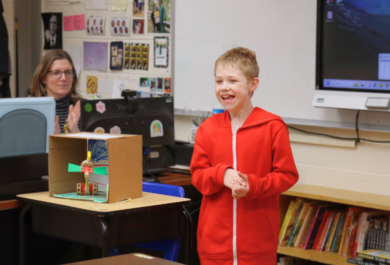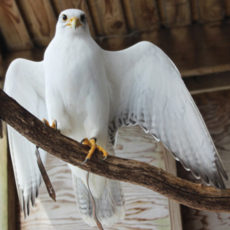Announcements

Even an animal with minor injuries can die of shock when it becomes scared, and humans are very scary to a wild animal. The most important thing to do when you find an injured animal is to keep it in a quiet, dark, and warm place.
Did you know that many baby animals that are found on their own outside should be left where they are? Animal mothers are better at looking after their babies than humans are, so if possible always make sure the babies stay with their mothers. Many mothers have special nutrients in their milk that their babies need and that formulas cannot replicate.
If you find a baby animal, make every effort to reunite it with its parents. This may be just a matter of letting it be. Watch the baby from a distance for several hours, if possible, to determine whether it is an orphan.
Whatever happens, do not raise the baby yourself. Wild animals have special needs, and it is illegal in New York, as in most other states, for residents to possess most native wildlife.
Contact Dave Spillo via 845.279.2995 x1304.

Crowned the best for falconry in medieval times, gyrfalcons were once reserved for kings. As the largest falcon in the world, with exquisite plumage ranging from bright white to deep charcoal, gyrs are revered for their powerful skill of flight. Their long wings make hunting waterfowl from 3,000-feet-high a feasible and fantastical feat. This falcon was flown in the sport of falconry for several years.